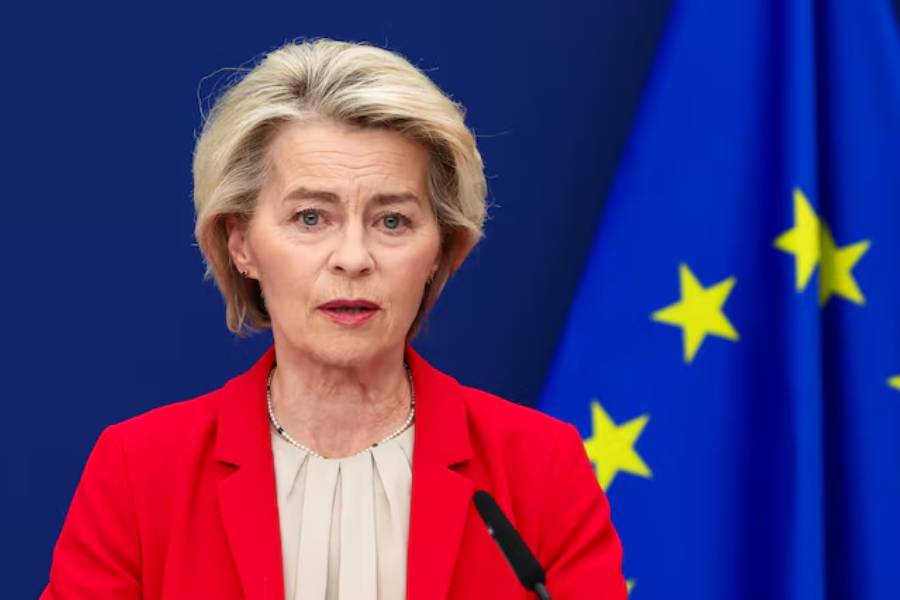
Published :
Updated :

The European Commission has proposed an 18th package of sanctions against Russia for its invasion of Ukraine, aimed at Moscow’s energy revenues, its banks and its military industry, European Commission President Ursula von der Leyen said on Tuesday.
The new package proposes banning transactions with Russia’s Nord Stream gas pipelines, as well as banks that engage in sanctions circumvention.
“Russia’s goal is not peace, it is to impose the rule of might ... strength is the only language that Russia will understand,” von der Leyen told a press conference.
The Commission proposes adding 22 more Russian banks to its list and to broaden restrictions on them beyond a removal from SWIFT, a global financial messaging system, to a full transaction ban. It also proposes expanding the scope to banks from third countries and lists the Russian Direct Investment Fund (RDIF) as well as its subsidiaries and wider network.
The Commission has also proposed lowering the Group of Seven nations (G7) price cap on Russian crude oil to $45 a barrel, from $60 a barrel, in a bid to cut Russia’s energy revenues.
Von der Leyen said that the oil price cap will be discussed at a G7 leaders meeting in Canada next week.
“My assumption is that we do that together as the G7. We started that as G7, it was successful as a measure from the G7, and I want to continue this measure as G7,” she said.
The proposal also lists more vessels that make up Russia’s shadow fleet, taking the total to more than 400 ships, and oil trading companies. The Commission has also proposed a ban on imports of refined products produced from Russian oil.
“In this way, we want to prevent that some of the Russian crude oil reaches the EU market through the back door,” von der Leyen said.
EU countries will start debating the proposal this week.


 For all latest news, follow The Financial Express Google News channel.
For all latest news, follow The Financial Express Google News channel.